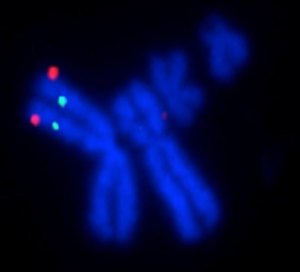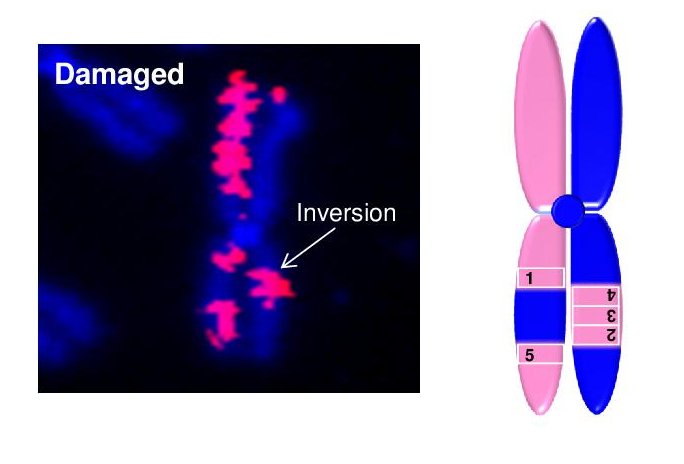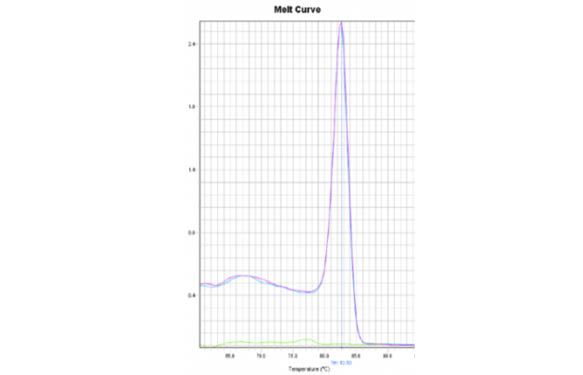 The U.S.-based company KromaTiD, Inc. offers a a large collection of catalog and custom chromosomal imaging paints, probes, and kits based on their patented technology. KromaTiD appears to have the only method capable of detecting so-called cryptic inversions where relatively small segments of the genome have changed orientation. Other technologies have a lower limit of inversion detection of 10 megabases, however KromaTiD’s directional Genomic Hybridization (dGH) technology allows visualization of inversions as small as 6 kilobases.
The U.S.-based company KromaTiD, Inc. offers a a large collection of catalog and custom chromosomal imaging paints, probes, and kits based on their patented technology. KromaTiD appears to have the only method capable of detecting so-called cryptic inversions where relatively small segments of the genome have changed orientation. Other technologies have a lower limit of inversion detection of 10 megabases, however KromaTiD’s directional Genomic Hybridization (dGH) technology allows visualization of inversions as small as 6 kilobases.
KromaTiD’s dGH kits can be directly integrated into any lab performing traditional chromosome analyses and fluorescence in situ hybridization (FISH). The assay is performed on living cells, which undergo one replication cycle in the presence of a DNA analog. The photolabile analog daughter DNA strand can then be destroyed by light leaving only the parent strand, thus allowing directional chromatid-specific imaging with KromaTiD’s probes.

KromaTiD’s ability to make small probes is also the basis of their Pinpoint FISH products, which have all of the functionalities traditional FISH probes but with a better signal-to-noise ratio and more precision. Pinpoint FISH allows visualization of genomic segments down to 6-10kb.
Shown here are two separate Pinpoint FISH probes on Chromosome 3.
KromaTiD, originally a radiation biology company, is actively seeking partners for custom projects where they will design kits and/or perform services to visually validate genomic study data or quickly assay for a known fusion, inversion, or deletion. The company’s dedicated team of specialists accompany clients throughout the process with a fast turnaround time. KromaTiD’s catalog offer of products and kits contain both complete chromosome paints and dGH GeneTracker probes that allow one to monitor whether a gene is on the correct chromosome for example. The ability of KromaTiD to monitor small inversions is particularly powerful for the detection of gene fusions. While the catalog products include assays for commonly studied fusions/inversions such as EML4-ALK, AKAP9-BRAF, and RET/PTC1 their dGH technology will be very powerful for studying cases where a small inversion has brought a growth/proliferation gene under the control of a constitutively active promoter.
European researchers wishing to learn more about KromaTiD’s catalog and custom products and services are welcome to contact me through the form below.



